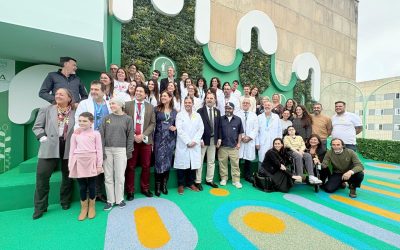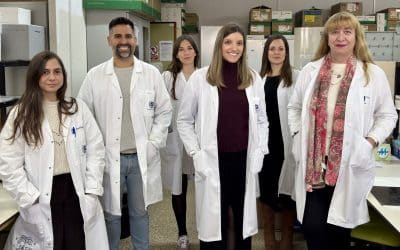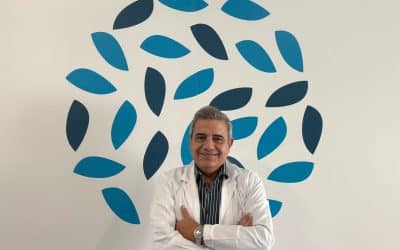This finding, carried out by researchers from IBIMA Plataforma BIONAND and the Hospital Universitario Virgen de la Victoria, confirms the benefits of healthy lifestyle habits and allows the development of more personalized therapies and the prevention of different diseases.
A team of researchers from the Malaga Biomedical Research Institute and Nanomedicine Platform (IBIMA Plataforma BIONAND) and the Hospital Universitario Virgen de la Victoria, has demonstrated that regular physical activity, combined with a Mediterranean diet, produces significant changes in the intestinal microbiota, which could have metabolic benefits in elderly people with obesity and metabolic syndrome.
The findings, published in the journal 'Biology of Sport', highlight the positive impact that lifestyle changes can have on the intestinal and general health of the aging population. In addition, this group of professionals is also part of the Centro de Investigación Biomédica en Red - Fisiopatología de la Obesidad y Nutrición (CIBERobn), attached to the Instituto de Salud Carlos III (ISCIII).
and
The PREDIMED-Plus study is a large Spanish clinical trial designed to investigate how a lifestyle intervention can help in the prevention of cardiovascular disease in people with overweight or obesity and metabolic syndrome. The aim is to evaluate how all these changes combined can reduce the risk of developing heart problems, type 2 diabetes and other weight- and metabolism-related diseases, demonstrating how this comprehensive approach can have long-lasting effects in the prevention of multiple chronic diseases.
About this finding on which this team has worked, the researcher of the group 'Obesity, Diabetes and its comorbidities: prevention and treatment', Patricia Ruiz Limón, who is also the first author of the study, has pointed out that “this is a work that shows how physical activity can act as a key modulator of the intestinal microbiota, which opens a new window to better understand its role in the prevention of metabolic diseases”. Thus, Ruiz Limón added that “these results allow us to advance in the design of more personalized interventions to improve the health of the elderly.”
For his part, the scientific director of IBIMA Plataforma BIONAND and researcher in charge of this group and co-author of the study, Francisco J. Tinahones, who is also head of the Endocrinology and Nutrition Service at the Virgen de la Victoria University Hospital, added that “it is very important that this study has gone beyond physical activity, weight reduction or improved glycemic control, since we can now clearly associate that physical exercise has a direct influence on the intestinal microbiota”, something that, in Tinahones' own words, “represents a link that could be fundamental when treating metabolic syndrome in the elderly”.
In addition, another of the co-authors of the study is the co-investigator responsible for this research group, Isabel Moreno Indias, who pointed out that “this milestone marks the way forward for future studies aimed at highlighting the potential of the study of the microbiota with other factors such as physical activity to bring the analysis of this type of bacteria closer, directing them towards more personalized therapies, the prevention of multiple diseases, as well as the improvement in their treatment”.
Reference:
Ruiz-Limón P, Muralidharan J, Gomez-Perez AM, Murri M, Vioque J, Corella D, Fitó M, Vidal J, Salas-Salvadó J, Torres-Collado L, Coltell O, Atzeni A, Castañer O, Bulló M, Bernal-López MR, Moreno-Indias I, Tinahones FJ. Physical activity shifts gut microbiota structure in aged subjects with overweight/obesity and metabolic syndrome. Biol Sport. 2024 Jul;41(3):47-60. doi: 10.5114/biolsport.2024.133005. Epub 2023 Dec 20. PMID: 38952913; PMCID: PMC11167471.
Raúl J. Andrade Bellido, es Investigador Responsable del grupo consolidado ‘Hepatogastroenterología, Farmacología y Terapéutica Clínica Traslacional’ de IBIMA Plataforma BIONAND, Catedrático y Director del Departamento de Medicina en la Facultad de Medicina de la Universidad de Málaga, Jefe de Servicio Aparato Digestivo del Hospital Universitario Virgen de la Victoria en Málaga. Además, es el Responsable del Grupo Español de Hepatopatias asociadas a medicamentos (Spanish DILI Registry), el Coordinador de la Red Ibero-Americana de Hepatopatías asociadas a medicamentos (SLATINDILI) y también del Registro europeo de Hepatopatías asociadas a Medicamentos (Pro-Euro DILI Registry). Chair de la COST Action CA17112 – Prospective European Drug-Induced Liver Injury Network (PRO-EURO DILI NET) y del EASL DHILI Consortium. Horizonte2020. Framework Programme (European Union).



